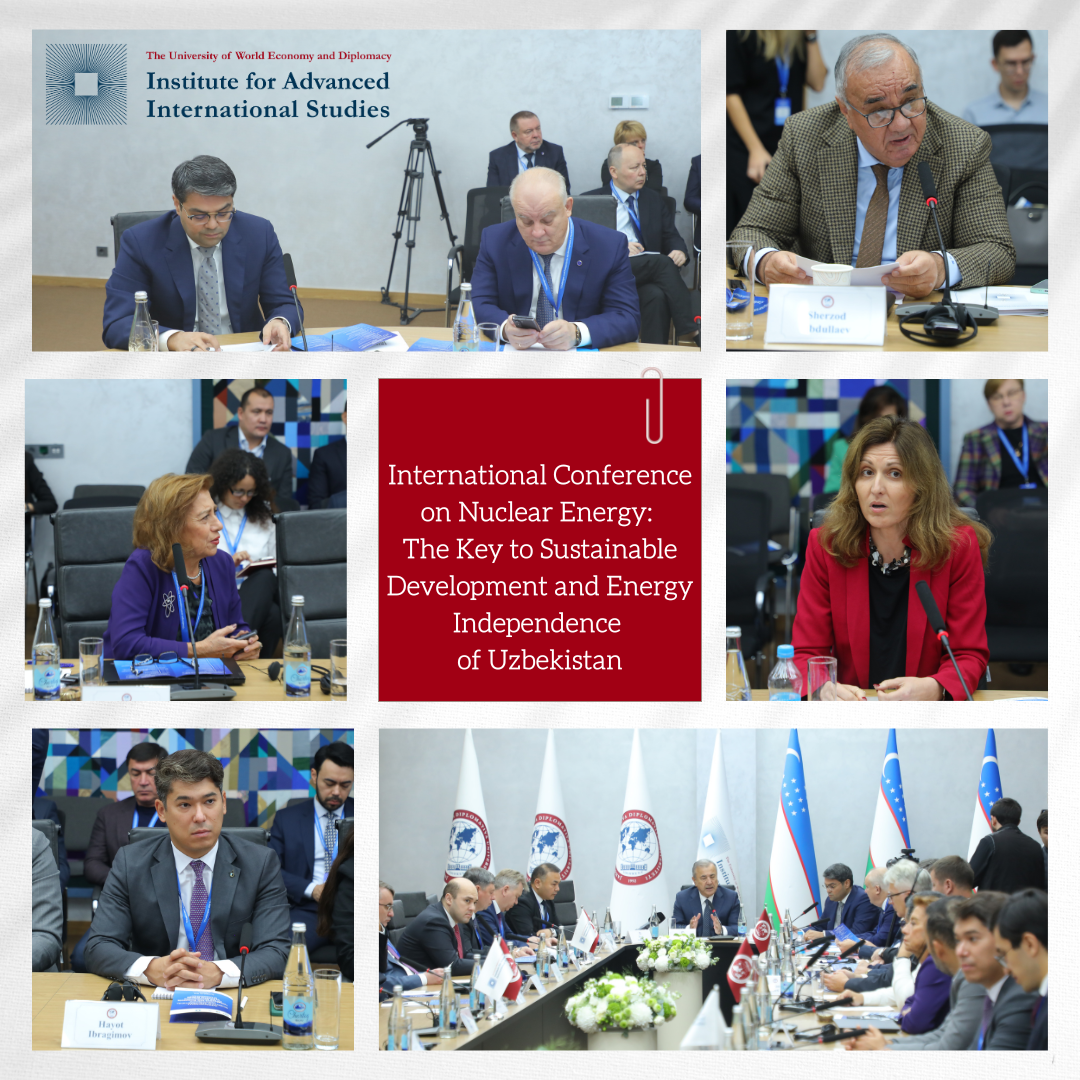
On 15 October this year, the University of World Economy and Diplomacy (UWED) hosted a large-scale international conference dedicated to the integration of nuclear energy into Uzbekistan’s energy balance, organised by the Centre for Energy Diplomacy and Geopolitics of the Institute for Advanced International Studies (IAIS) together with the UzAtom Agency with the support of UWED, the Russian State Corporation Rosatom and the CENTIL.LAW legal consulting company. The event was attended by representatives of government agencies, international organisations and leading nuclear energy experts from Uzbekistan, Russia, the United States, France, Kazakhstan, Turkey, Hungary, Serbia, and the Republic of South Africa, who discussed key aspects of nuclear energy development in the country and its role in the global energy strategy.
The event was opened by Sodyq Safoev, First Deputy Chairman of the Senate of the Oliy Majlis of the Republic of Uzbekistan and Rector of UWED, emphasising the importance of international cooperation in the nuclear sphere for Uzbekistan, as well as the need to integrate advanced technologies into the national energy system. Among the key speakers was Sama Bilbao y Leon, Director General of the World Nuclear Association, who provided valuable insights into international experience in the use of nuclear energy and the importance of its introduction in developing countries. Welcoming remarks were also made by Umid Madaminov, Deputy Minister of Energy of Uzbekistan, who set the tone for the start of the discussions.
Azim Akhmedkhajaev, Director of the Atomic Energy Agency under the Cabinet of Ministers of the Republic of Uzbekistan, and Aybek Mukhamedjanov, Chief Specialist of the State Committee for Industrial, Radiation and Nuclear Safety of Uzbekistan, presented the current state and possibilities of nuclear energy in the country, and emphasised the importance of the role of international cooperation with the IAEA.
The speech of Dr Sherzod Abdullaev, Director of IAIS, is worth noting. In his speech, he elaborated on the geopolitical and geotechnological aspects of nuclear energy development in Uzbekistan. He noted that the development of the nuclear industry is not only an energy issue, but also an important part of global political and technological processes. Dr Abdullaev emphasised that nuclear technologies could serve as a “trigger” for a qualitative transformation of the country’s economy, as has happened in countries such as South Korea and China. In conclusion, he stressed that for Uzbekistan, the construction of a nuclear power plant is not only a step towards energy independence, but also an opportunity to become a technological leader in Central Asia, promoting regional co-operation.
Sergey Agafonov, Chairman of the Kazakhstan Association of Energy Saving Organisations, spoke about the results of the recent referendum in Kazakhstan, stressing the importance of energy reforms. Zsolt Harfasz, nuclear energy expert from Hungary, highlighted the successful co-operation between Hungary and Russia in the field of nuclear energy. Danica Grujicic, professor of medicine and neurosurgeon from Serbia, presented a paper on the importance of nuclear medicine in the fight against cancer. Baris Güner, Director of Nuclear Projects at Assystem, France, emphasised international cooperation in the field of nuclear technology. Onlametse Emmanuel Montwedi, representative of the South African energy company NESCA, spoke about South Africa’s efforts to develop nuclear power to improve the country’s energy security. These presentations made an important contribution to understanding the diversity of approaches to nuclear energy and its importance for Uzbekistan’s energy and environmental security, as well as for its international co-operation in this field.
Thus, the Nuclear Energy Conference brought together leading experts and statesmen, each of whom made an important contribution to the discussion of strategic nuclear energy issues. The event concluded with a summarising session, where participants expressed confidence that further steps to develop nuclear energy in Uzbekistan will contribute to the country’s sustainable development and its integration into the global energy community.